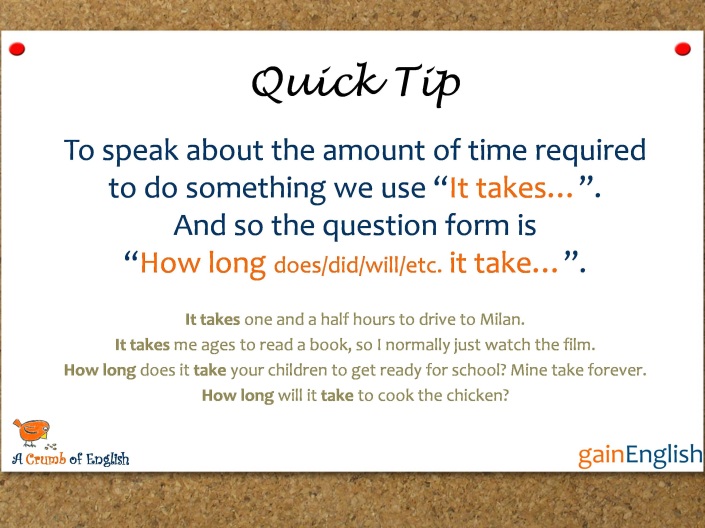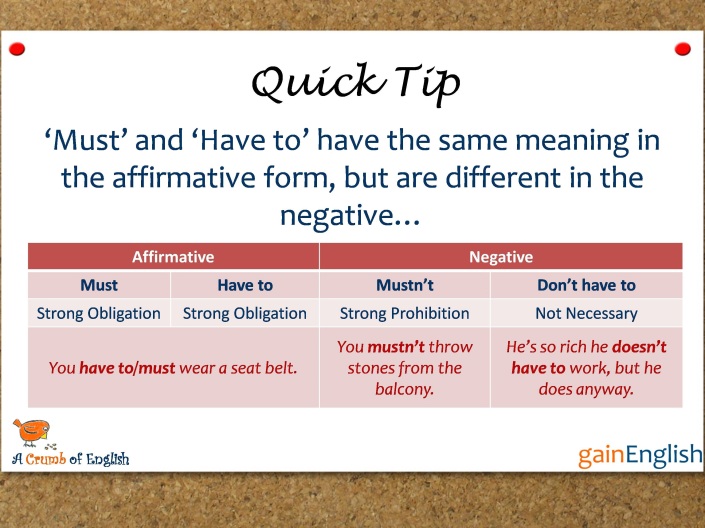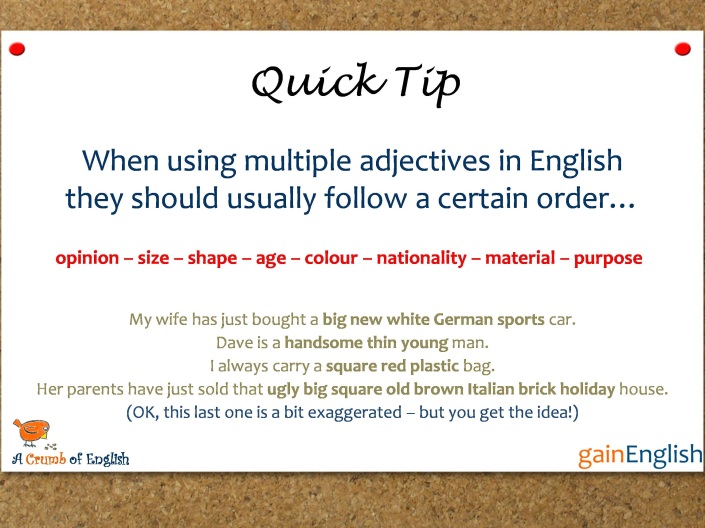English grammar
Within or By
A lot of our students, for example the ones from Italy because they use the same word for both, have some difficulty with the difference between within and by in time expressions. However, the difference is actually quite simple:
Use BY with a point in time
Use WITHIN with a period of time
Let’s look at the following examples…
The job application must be submitted by 31 January 2015.
Our electricity bill must be paid within 2 weeks.
As you can see ’31 January 2015′ is a point in time, whereas ‘2 weeks’ is a period. There is also another possibility to mention which is synonymous with within, and that is in…
Our electricity bill must be paid in 2 weeks.
There you go, nice and easy!
Economic or Economical?
Here is a new item for the series of posts dedicated to all those English students who cannot believe that sometimes even mother tongue speakers also get it wrong.
This post is about two words that, despite looking very similar have very different meanings. We are going to tell you when each one of them needs to be used, so you can finally impress, and perhaps even correct your mother tongue friends!
The two words are economic and economical.
ECONOMIC: relating to the economy (trade, industry, money) or the science of economics. It can also refer to something designed to give a profit.
Some examples…
The government’s economic policy is very weak.
From renting that house I receive an economic rent: I am able to cover my expenses and earn a bit more.
ECONOMICAL: means ‘careful in the use of resources’, and it is used to refer to something that doesn’t waste money, time or other resources.
He is economical with the use of salt when he cooks.
This car is very economical: it consumes very little petrol.
It is also commonly used in the following expression to indicate that someone is being dishonest (‘careful in the use of the truth’).
I think he is being a little economical with the truth.
So, think about what you want to say. If the meaning is along the lines of ‘careful with the use/consumption of something or with spending’, choose economical, if not choose economic. It could also be worth remembering that normally the word ‘economic’ has something to do with ‘economy’.
We’ll be back soon with more useful tips. Keep studying!
—
To have something to do with – related to
Tip – a helpful piece of advice
They also get it wrong – Lay vs Lie
They also get it wrong – Lay vs Lie
This series of posts is dedicated to all you English students who spend hours trying to perfect your English, thinking “I have to speak as perfectly as a mother tongue speaker”, well, guess what, sometimes they also get it wrong.
Are you starting to feel better? Carry on, carry on, the best is still to come.
If you have always wondered how they manage to know and remember all those funny rules and exceptions, well trust us when we tell you that even they get confused sometimes. Obviously not everybody makes the same mistakes, but there are particular things that mother tongue speakers get wrong time and time again.
Here is an example.
Have you ever struggled with LAY and LIE? If so, you are not alone, also English mother tongue speakers have to think hard about this one. Let’s take a look:
TO LAY – LAID –LAID -> to place something in a certain position or on a surface
Lay the book on the table, please.
My son fell asleep so I laid the blanket on him.
The keys were laying on the shelf in front of me, but I still couldn’t see them
TO LIE – LAY – LAIN -> to be at rest on a horizontal surface
Don’t lie in bed all morning!
The dog lay at his master’s feet.
When I walked in, he was lying on the sofa.
The confusion is due to the fact that these words relate to similar actions and that the past tense form of one is the same as the present form of the other! How can you avoid making mistakes? First of all learn the verb patterns (lay-laid-laid and lie-lay-lain). Before using lay or lie stop and ask yourself which one is correct, then decide which tense you need to use (present or past?) and use the pattern you’ve learned. Easy!
And just to add to the confusion, remember there are also:
TO LIE – LIED – LIED -> to make a statement you know to be untrue
LIE (noun) -> a statement you know to be untrue
A little summary…
David: The chicken laid three eggs yesterday, I saw her laying them while lying on the sofa. She lay there all afternoon.
Colette: What are you saying? Don’t lie!
David: I’m not lying, it is the truth. I lied last month, I won’t do it again.
Right, now go out there and show the mother tongue speakers how it’s done!
—
To wonder – to ask yourself about something
Pattern – a particular way in which something is organised, is carried out, or happens
To struggle – to experience difficulty trying to do something
Hard (e.g. to think hard, to work hard) – using a lot of mental or physical effort








